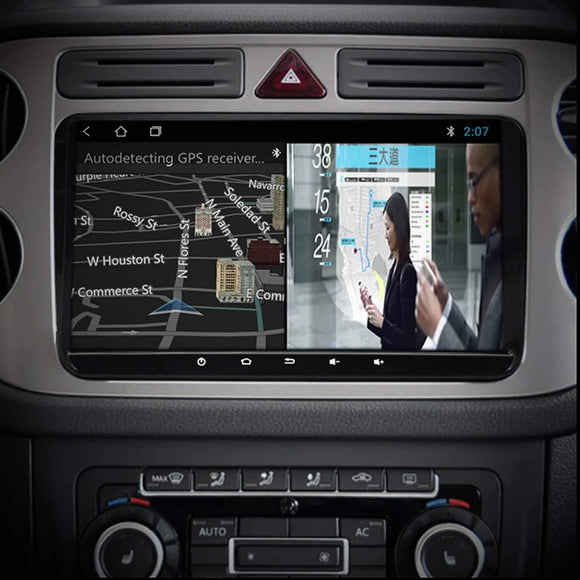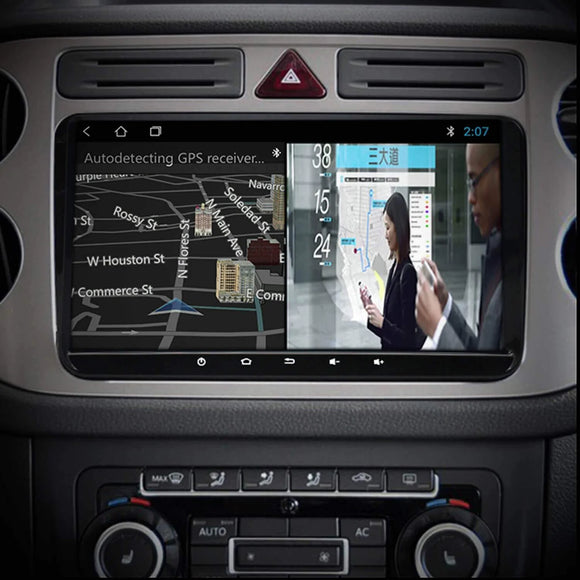
The significance of a vehicle radio in sound reproduction
Most drivers want some type of entertainment to keep them focused while driving, and music is one of the most common. We all know what our in-car radios can do, but we frequently overlook the fact that the car's audio is the most important component in the radio. This article's main objective is to give insight and clarity on the issue of the significance of your car audio, showcasing its basic functions and capabilities.
What precisely is a vehicle radio system?
First of all, there’s an awful lot of synonyms regarding the car tech parts, but one of the most important pair is the Car stereo & head unit. Basically, some people refer to the car stereo as the audio system in a whole while some people claim that head units and stereos are the same.
That’s true for as long as we take the following fact into consideration – the stereo refers to the main unit which is more often than not located within your car’s dashboard. This “unit” receives and transmits sound waves through “filters” and, lastly, through the speakers.
In general, a car radio serves as the brain of the vehicle, controlling all critical systems. This unit's "power and speed" will affect how effectively the other elements work, yet its flexibility will allow extra possibilities (primarily for sound customisation).
What are the fundamental features of a vehicle stereo?
The majority of high-quality automobile audio sets have a slew of technical components, including a radio tuner, a CD player, a premp, and an amplification device. They are all firmly interwoven with little cables to form a clean, orderly structure. Lower-end stereos include some, if not all, of these functions (although with a lower performance rating).
The ability to control audio sources
This brings us to the first fundamental function of any automobile stereo: control over these audio sources. It's not impossible to envisage a car that comes equipped with all of these elements on its own - it would not only be enormous, but also extremely difficult for drivers to use, given that the interior would resemble a spaceship rather than a typical vehicle.
Because that isn't an issue, it is up to the vehicle radio to manage what each component does, when and how it is used. Certain components (such as amps and pre-amp devices) are activated automatically once you turn on your car audio, while others (such as the CD player) must be engaged manually.
Even with all of these music sources incorporated into your car's sound, some head units come with the option of external connectivity, such as iPod ports. Because drivers must concentrate on the road, fiddling with external connections (volume, songs, and so on) would be incredibly cumbersome, which is why the vehicle audio provides a simpler method to utilize these settings.
Looking back a few decades, the value of this feature was low because each head unit received a single audio source - AM radio. As technology advanced, the number of sources expanded substantially, emphasizing the significance of this automotive tech component.
Controlling the volume
The majority of people may not place a great value on volume control, and there's a solid reason for that: this feature is quite useful right now. You may elegantly regulate the level of your songs, playbacks, and other media with a single touch of a button (or a slide of the knob).
What if you had to adjust the settings of each item separately? The volume control is just as vital as the control over audio sources since it removes problems like beeps, buzzing, screaming, scratching, an extremely loud or weak signal or sound, and so on.
Just like our brain helps us select the ideal volume and tone of our voice during talks, the automobile audio helps maintain the music soothing and pleasing to our ears.
High-end systems are distinct, although they are becoming increasingly important.
Certain high-end systems have increased efficiency and are regarded as "user-friendly" - the third most essential feature of a decent vehicle audio. The "interface" is being discussed. High-end vehicle stereos are built with a "easy-to-use" interface, which considerably reduces the amount of effort required for a motorist to expend in order to utilize the stereo.
If we take a look at a cheap, old vehicle audio, you'll note that the buttons and functions are too tiny, necessitating more attention if you want to do it correctly. On the other hand, "user-friendly" stereos with a simple interface are amazingly easy, eliminating not only the tedious process of selecting correct functions, but also keeping your drives "safe and sound."
Tuning options
Most current head units include "audio tuning features" that allow you to modify how your sound will sound in the end.We're talking about features such as the "Bass boost", which significantly sharpens the lowest sound frequencies, the "Band-EQ" which controls the overall soundstage, the "time alignment" for cases when the music goes out of sync, and such.
Pioneer's head units are often loaded with all of the audio tuning options you'll need to tailor your sound to the best of your ability, so you might want to look into some of them.
Upgrades & factory stereos
It's reasonable to assume that most people are happy with the audio in their car when they buy it, but the fact is that there's always space for improvement. Factory stereos, for example, are expected to "work" and "sound decently good," but that's about it. If you want greater sound, you should think about updating your stereo.
The reason your stereo will sound so average is that OEM stereos have little wattage, therefore the output is, to put it mildly, lousy. Upgrading is not only simple, but also inexpensive - most improvements are inexpensive, and you may modify every aspect of your car's sound with aftermarket modifications.
Car audio systems and speakers
Even in the best-case situation, when your vehicle radio is flawless, there's a risk that the sound isn't. The reason for this might be anything, although the speakers are usually to blame.
Plainly put, the speakers are the "voice" of your car's stereo, and regardless of how good the stereo is, you just won't be able to get the most of it without a proper set of speakers.
Certainly, bad speakers will not reduce the overall quality of how your vehicle radio sounds - you just won't get to hear how it could sound.
Conclusion
The major reason why people pay so little attention to their vehicle stereos is fairly simple: these devices are designed to provide a high degree of convenience, which is readily taken for granted in most circumstances. Nonetheless, these "head units" are by far the most significant component in any stereo system, and you should prioritize updating them if you're unhappy with the quality of your in-car music system.


